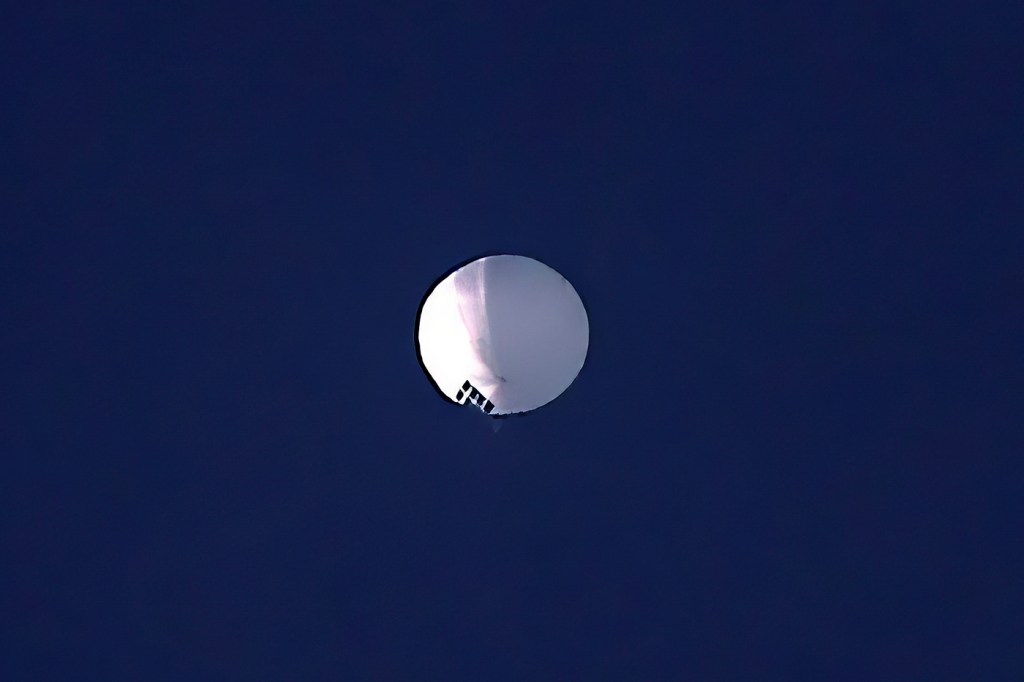China’s spy balloon ‘unlikely a mistake.’ What does it mean for US-China relations?

The discovery of a high-altitude Chinese spy balloon over the U.S. and the subsequent postponement of U.S. Secretary of State Antony J. Blinken’s planned trip to Beijing dashed hopes for a quick thaw in tensions between the two powers, according to a Northeastern diplomacy expert.

“My take is that the White House’s reaction is a little bit over the top,” says Mai’a Cross, dean’s professor of political science, international affairs and diplomacy, and director of Northeastern’s Center for International and World Cultures. “The stance that the Biden administration is taking is that if it allows this balloon to gather information, it could create a slippery slope toward signaling that any country could venture in U.S. airspace and collect U.S. intelligence with little ramifications.”
The U.S. military shot down the balloon off the Carolina coast on Saturday. President Joe Biden issued the order.
In response, China threatened to retaliate, saying it has the right to “take further actions” for what it deemed “an obvious overreaction and a serious violation of international practice.”
The Chinese government claimed the balloon-like object was their own civilian aircraft that strayed far from its course to end up in U.S. airspace.
As seen from residents on the ground in Montana, the aircraft appeared a golf ball-sized object that, since it was first spotted last week, had been confused with the moon. In reality, reports showed it was the size of three buses—a reconnaissance balloon, the U.S. says, that had been hovering overhead for “an extended period of time.”
The presence of the balloon in U.S. skies prompted Blinken to postpone his planned trip to Beijing on Friday. The New York Times reported that Blinken told a top Chinese foreign policy official that the balloon’s presence in U.S. skies was a “violation of sovereignty.”
While there are still many unanswered questions, that the balloon had been loitering above sites that house large numbers of intercontinental ballistic missiles strikes some observers as unlikely an accident.
Cross says it could be that China intended to gather intel on the U.S.—the two countries spying on one another is not unusual—but in a clandestine manner. That would mean that China may have intended for its airship to fly its course undetected.
Or, Cross says it’s plausible that the Chinese government purposefully entered U.S. airspace in such a manner as to ensure that the aircraft is detected by authorities. Surely, it would be a brazen act on the part of Beijing—but one that sends a signal to the U.S. about how China sees itself on the international stage.
“It’s possible that the Chinese government wants to, in a sense, swagger and show it has the capacity and willingness to spy on the U.S.,” Cross says.
The incident comes at a particularly low point in U.S.-China relations, Cross says, citing China’s recent threats to Taiwan, its crackdown on Hong Kong’s pro-democracy movement and its treatment of the Uyghurs. That’s why Cross says Blinken should have proceeded with his visit—the first of its kind in five years.
Blinken’s planned two-day visit had raised hopes that officials could thaw tensions.
“Now this low point is going to get even lower in terms of diplomatic relations,” Cross says. “It somehow has to be defused. The fact that Blinken postponed his trip means it’s going to be more difficult to defuse those tensions.”
Tanner Stening is a Northeastern Global News reporter. Email him at t.stening@northeastern.edu. Follow him on Twitter @tstening90.






